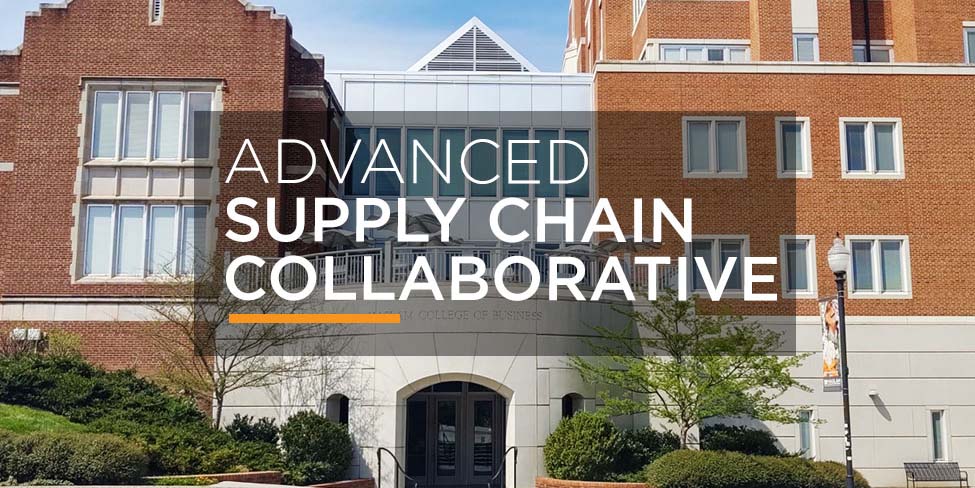Members of the Advanced Supply Chain Collaborative celebrated a rewarding first year in a recent Zoom meeting during which its initial year-end report was delivered.
A joint initiative of the Global Supply Chain Institute and the Department of Business Analytics and Statistics at the University of Tennessee, Knoxville’s Haslam College of Business, the collaborative brings together industry experts and UT faculty to explore advanced concepts in supply chain management. Meeting attendees included faculty from supply chain management, business analytics, management and executive education, plus representatives from member companies including: Amazon, Bush Brothers, Colgate-Palmolive, Cummins, Eastman, Kenco Logistics, La-Z-Boy, McCormick, Mondelēz International, Pfizer and SC Johnson.
The collaborative creates valuable and applicable insights to share among members and communicate through academic and professional publications, classroom instruction, curriculum development and immersive experiences for students.
“The first year of the Advanced Supply Chain Collaborative was a smashing success,” Chad Autry, head of the supply chain management department, said. “I believe this is the future model of supply chain management scholarly excellence: an ecosystem of teaching and learning between industry, students and faculty that leads to better teaching, more research, more resources and more recognition as well as performance improvements for our industry partners.”
The collaborative’s first year generated five successful projects in the areas of supply chain agility, workplace transformation, inventory modeling, data strategies and blockchain ROI. These projects, in turn, spawned an abundance of new teaching materials and research possibilities. The year-end report meeting featured summaries of the collaborative’s work in these sectors, which offered many pertinent, actionable findings.
For example, in the presentation on supply chain agility – i.e., a company’s swiftness in adjusting supply chain tactics and operations – Tom Goldsby, speaking for his research team (UT supply chain faculty Lance Saunders, Ted Stank, UT PhD supply chain management student Anne Dohmen and Jason Merrick, faculty member at Virginia Commonwealth University) presented their results from a simulation using decision points and cost variables to make “what-if” comparisons among supply chain strategies. Some of their conclusions were: companies can achieve greater agility up and down the supply chain through adjustments to decision processes and frequencies; agility offers resilience to companies contending with the pandemic and other disruptions; and, using the latest demand data and shortened planning cycles, companies may achieve agility economically without significant capital investment.
Stank, faculty director of the Global Supply Chain Institute, who helped moderate the meeting, spoke to the value that the Advanced Supply Chain Collaborative offers to stakeholders, including industry members, faculty, students and the community at large.
“The collaborative is a learning multiplier that puts us ahead of the curve on important issues in supply chain management,” he said. “This initiative is a living embodiment of the Haslam College of Business mission to create, share and apply knowledge. Many academic and industry articles are planned out of this work, and we are incorporating it into our courses. The value is already being realized.”
In its second year, the collaborative will take on new projects as well as develop ways to apply the first-year projects’ findings in real time to produce measurable results. Additionally, during the upcoming Virtual Supply Chain Forum, a roundtable discussion with collaborative members and premium Supply Chain Forum partners will address current supply chain issues and challenges.
“I think this venture is a win-win as far as teaming academics and industry to pursue targeted initiatives that have applications in both areas,” Stank said. “It’s already paying dividends for each. I believe the coming year will have a more directed, deeper focus on topics of real concern for industry that produce applications immediately useful to businesses, which also can be incorporated into student learning experiences.”
CONTACT:
Scott McNutt, business writer/publicist, rmcnutt4@utk.edu
